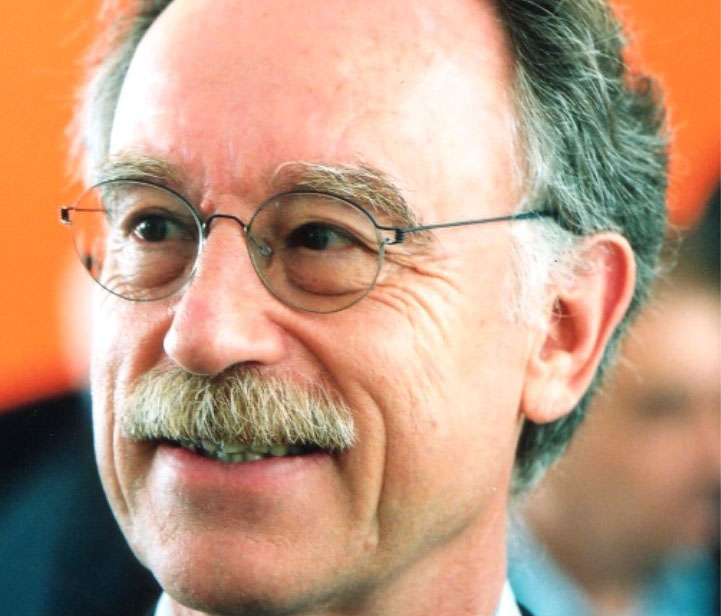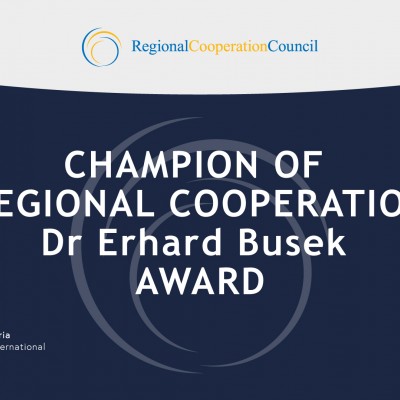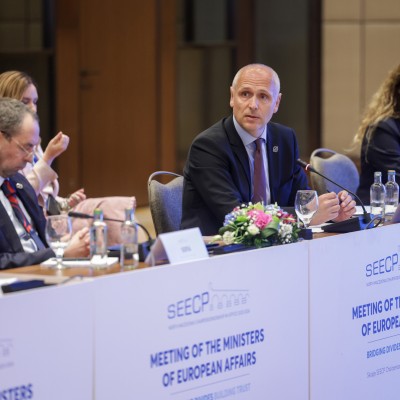Civil Society in the Western Balkans
26 August 2015

Dr. Franz-Lothar Altmann, Associate Professor at the UNESCO Department for International & Intercultural Relations at the Bucharest State University (Photo: http://www.erstestiftung.org/)
The term “civil society” has become widely used to describe the part of society that does not belong to the political administration and party system and uses other avenues to voice its concerns, interests and ideas. These can be formulated through non-governmental organisations and institutions, as well as by individuals who form ad hoc movements to deal with longer-lasting or short-term issues that are not satisfactorily handled by the various official institutions and layers of the state. The citizens’ level of satisfaction concerning the representation of their will and interests firstly depends on the form of the state in which they live. In a functioning democracy with a multi-party system, the possibility to influence party programmes and vote for a range of parties makes it easier to express different ideas and viewpoints than in autocratic systems, where the will of one person or a distinct, smaller group of persons excludes an open discussion on disputable issues, as this might endanger the interests and gains of the ruling person or group. This often impedes any attempt to develop a civil society as a counterpart in autocratically ruled societies, although the need for civil society is far more urgent than in a well-functioning, democratic state. As a result, we find that the more mature a democracy, the greater the spectrum of civil society. A society’s heterogeneity plays an even more important role with regard to the spectrum and importance of a civil society: heterogeneity in terms of ethnicity, religion, regional traditions and, most of all, economic and ecological interests, differences and concerns. This explains why modern heterogeneous democracies are home to a great variety of activists groups, charities, environmental groups, consumer organisations, religious organisations, trade unions, voluntary associations, cultural groups, cooperatives, etc. which aim to facilitate rational and democratic social interaction in cooperation with, or instead of, the state.
If we try to compare a state with a building that has been constructed as a condominium property, then the architect was given the order to construct it according to the wishes of the condominium partners. In our state, the architect is the government, which forms the administration and policies according to the will of the people that have been aggregated on party platforms. However, like the state, a building is never without deficiencies and always needs repairs, renovation and improvements, as well as adjustments to changing external conditions. An important role that civil society has to play in its house – i.e. the state – is filling the gaps and addressing the deficiencies which politics creates or overlooks. These may be obvious from the outset and systemic, such as lack of transparency, inefficient bureaucracy, insufficient freedom of expression and restrictions to media freedoms, or obvious deficiencies in priority-setting with regard to developing a socially harmonious and prospering society. However, in a similar way to a condominium building, deficiencies and a need to take action and make repairs may arise later. Merely addressing those needs during election campaigns is generally ineffective, in particular if other major problems and concerns remain on the agenda.
In the Western Balkans, civil society is developing in states that in many respects are incomplete, emerging democracies where many deficiencies are due to political structures that mirror the interests of clientelistic groups and not the rational will and expectations of ordinary citizens. In light of this, the role of civil society in the Western Balkans is of key importance in two respects. First, in order to address the wounds that characterise the respective states from the outset, and second, in order to address issues and problems that official politics are not willing or are unable to handle, such as reconciliation and confidence-building, strengthening regional cooperation on all levels, fighting corruption and organised crime, strengthening local responsibilities in the field of economic development and environmental protection, among other issues. Furthermore, civil society can act cooperatively with official politics when discussing and setting priorities. In this regard, politics can profit from cooperating with civil society. Much evidence suggests that official politics in the Western Balkans still underestimates the role of civil society and even views it in a negative light. The Austrian government’s idea to include the role of civil society in the Western Balkan Summit in Vienna therefore deserves great acclaim! Let us hope that the results from the Civil Society Forum from the day preceding the summit will fall upon ears among the representatives of the region and find support from the respective partners in the EU.
![]()
Dr Franz-Lothar Altmann is Associate Professor at the UNESCO Department for International & Intercultural Relations at the Bucharest State University. He is also the Co-Editor of the quarterly Journal for Southeast European and Black Sea Studies and Editorial Board Member of the International Journal of Balkan Policy Research and of the Romanian Journal of Sociology as well as a Member of the Board of the `Southeast Europe Association´in Munich. He is the author of 10 books and more than 260 articles on East- and Southeast-European economics and politics, transformation and European integration (EU-enlargement).




